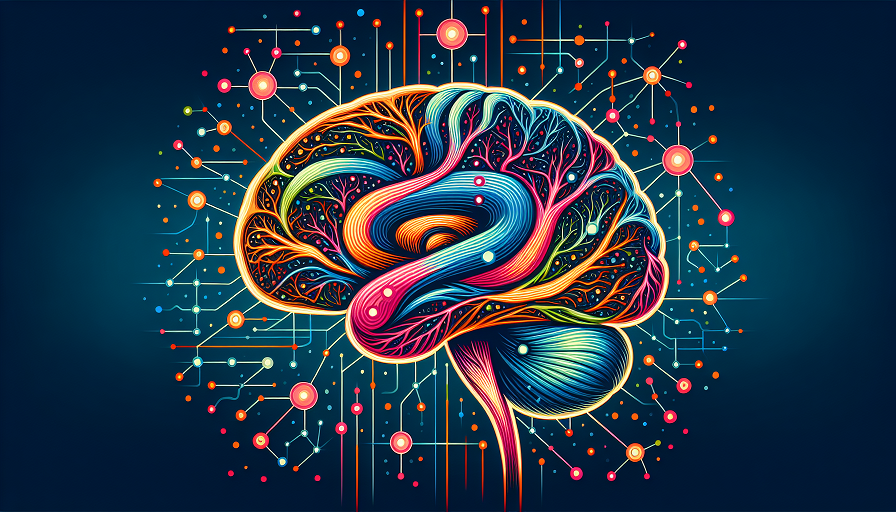
When your brain feels like it’s running on empty—foggy, sluggish, or struggling to bounce back after stress—it might be time to look at how well you’re fueling it. L-glutamine, a non-essential amino acid, plays a critical role in brain health and mental recovery. It acts as a building block for important neurotransmitters and supports cellular repair, making it a potential ally for clearer thinking and reduced brain fog.
The Role of L-Glutamine in Cellular Brain Repair
L-glutamine is often referred to as the “handyman” of amino acids because of its wide-reaching repair and maintenance functions. In the brain, glutamine serves as a precursor to glutamate and GABA, two key neurotransmitters that regulate your cognitive and emotional balance.
Glutamate, an excitatory neurotransmitter, is essential for learning and memory. However, too much glutamate can overstimulate neurons, leading to cellular damage—a condition known as excitotoxicity. Here’s where glutamine shines: it helps regulate glutamate levels, ensuring the brain stays in balance. When neurons fire efficiently, mental clarity improves, and the brain can recover more effectively from stress or injury.
GABA, on the other hand, is an inhibitory neurotransmitter that promotes relaxation and reduces overstimulation. Glutamine’s role in producing GABA makes it vital for calming the brain, especially during periods of mental fatigue or after prolonged stress.
Glutamine also supports the repair of the blood-brain barrier, the protective layer that prevents harmful substances from entering the brain. When this barrier is compromised, inflammation and toxins can disrupt brain function, leading to cognitive fog and slower mental recovery. By aiding in the production of cellular fuel like glucose and ATP, glutamine ensures brain cells have the energy needed to heal and perform at their peak.
Sources of natural glutamine include:
- Protein-Rich Foods: Chicken, fish, and eggs are excellent options.
- Plant-Based Choices: Spinach, cabbage, and tofu provide ample glutamine.
- Supplements: Powders or capsules can be used for targeted support, especially after illness or intense mental strain.
Research Linking Glutamine to Reduced Brain Fog
Brain fog isn’t just a catchy term—it’s a real symptom caused by a variety of factors, including stress, poor nutrition, and even inflammation. Research has started to uncover how glutamine can help clear the mental haze and restore cognitive sharpness.
A study published in The American Journal of Clinical Nutrition explored glutamine supplementation in individuals recovering from stress-induced fatigue. Participants who received glutamine reported faster recovery times and improved focus compared to a control group. Researchers noted that glutamine’s ability to replenish neurotransmitter levels and reduce inflammation likely played a key role.
Another study in Neurochemistry International examined how glutamine supports the glutamate-GABA cycle. By ensuring a steady supply of these neurotransmitters, glutamine helps prevent the cognitive “crashes” often associated with brain fog. Participants in the study showed improvements in attention span and mental energy after consistent supplementation.
For individuals with leaky gut syndrome—a condition closely tied to brain fog—glutamine has also shown promise. A study in Gut Microbes highlighted glutamine’s role in healing the gut lining, which can indirectly reduce inflammation and improve cognitive function. The gut-brain axis, a communication highway between your gut and brain, relies on reduced inflammation for optimal function.
To incorporate glutamine into your routine:
- Start Small: Begin with a daily dose of 5 grams if supplementing.
- Pair with Protein: Foods like chicken or lentils naturally boost glutamine levels.
- Time It Right: Taking glutamine after physical or mental stress can maximize its recovery benefits.
- Consult Your Doctor: While glutamine is generally safe, it’s always wise to check if you’re managing specific conditions.
L-glutamine’s role in neurotransmitter balance, cellular repair, and inflammation reduction makes it a valuable ally for mental recovery. Whether you’re battling brain fog or looking to support your cognitive resilience, this amino acid can help your brain function like a well-oiled machine. Add some glutamine-rich foods to your diet or consider a supplement to give your brain the recovery boost it needs.

